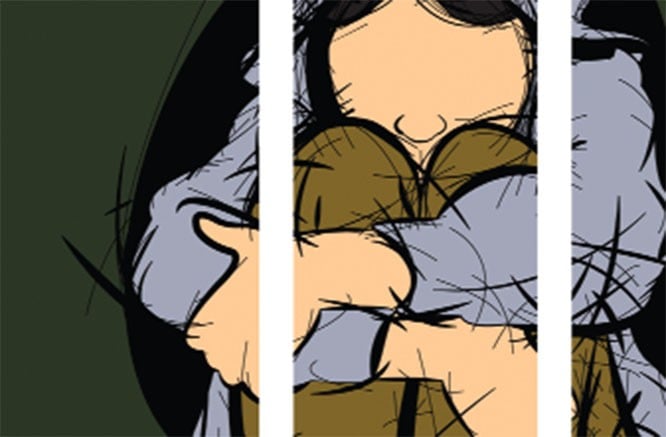
The police shares names and photos of those arrested, with the media and on their social media page, ruining many a life

Muhammad Azeem* recalls an unhappy incident of his life. A few years back he started constructing his home on a plot. One day he received a call from Waris Khan police station of Rawalpindi. He was asked to visit the police station.
When he reached there he came to know that a local influential person had filed a complaint against him claiming that Azeem had forcefully occupied his plot and had started construction. Police registered an FIR against him and put him behind bars. They also took Azeem’s pictures and released them to the media.
Next day his pictures were published in local newspapers with the caption that police had arrested a member of the land mafia. Later on, he was not only released by the court, but he also won the case against him. What he lost, however, was his honour and dignity in society over a fake accusation.
This is not the only such case. Police often take pictures of the accused arrested in different cases and release them not only to the media but also share them on their own social media accounts. Pictures posted by police on social media include those arrested for minor violations, under tenancy law, for kite flying or gambling.
Kashif Mehmood*, a resident of Rawalpindi, says he failed to submit his particulars in the police station on time due to some family problems. It was not a big crime. Police arrested him during a search operation, took his pictures and shared those on their official social media account, thereby ruining his standing in society. He and his family went through much distress, explaining to near and dear ones why the police were advertising him.
Sometimes police present the accused before the media. The accused can’t defend themselves in the presence of police even when some of them have no criminal record. Police are violating human rights by declaring the accused as criminal without giving them an opportunity to defend themselves and appear before the court.
On the contrary, whenever the police arrest high profile criminals or terrorists, they are produced before the media with their faces covered.
Human rights activist Syed Kauser Abbas says, "Sharing photos of accused is a violation of basic human rights. FIR (First information report) cannot be the basis for propagating someone as a criminal. It can only increase the gap between the police and the public."
Police do not have the right to decide the case and declare someone criminal even before the court trial, and police higher ups need to take note of this practice and have it curbed.
Faisal Muneer of the Centre for Peace and Development Initiatives(CPDI) says, "There is no specific clause in the Police Ordinance which restricts them from sharing photos of the accused on social media and with media persons. However, presenting the accused as criminal only on the basis of an FIR is condemnable."
A code of conduct for the police was issued by the former Inspector General of Police, Javed Iqbal.
Section Q of said code of conduct clearly prohibits an officer below the DPO/RPO rank from sharing information with the media. Often sub-divisional police officers (SDPO/DSP) conduct a press conference and present the arrested accused before the media only to show their performance.
Senior Journalist Saleh Mughal says he personally thinks that the violation of the tenant act is not a crime. In fact it is just negligence on the part of a citizen. The police should only impose a fine in such cases.
Spokesperson of Rawalpindi police, Imran Haider says, "The police has no standard operating procedure regarding the presentation of accused before themedia or releasing their photos on official social media accounts."
"It depends on public importance; police release the information or photos in the best public interest." He says, "Crime is crime, whether it is a violation of the Tenant Act or a murder."
Sharing photos and information of the accused not even nominated in the FIR is a violation of Article 22 that is about ‘identification parade’ in the Qanun-e-Shahadat Ordinance 1984. Chapter 11 of the Lahore High Court Rules defines the procedure of the identification parade, according to which the police is not supposed to share any information about the accused with the witness which helps him in the identification of the accused.
Advocate Qazi Hafeez Ur Rahman says, "If the police shares information or photos of an accused and later fails to prove him guilty, he/she can file a defamation case against the complainant and police."
Seconding him, Advocate Javeria Qureshi says, "If a citizen is declared innocent by the court in a case or it is established that the FIR registered against him/her was fake, or the accused was humiliated by sharing his/her photos, law grants him the right to file a defamation case against the police and the prosecutor who has registered an FIR against him."
"Defaming and registration of fake FIRs will not come to an end until the citizens challenge this practice by filing defamation cases against police and opponents," Advocate Javeria adds.
Sharing photos of citizens arrested in minor crimes like Tenant Act or kite flying is unethical. They cannot be propagated as criminals in society. Such acts create hatred against police among the public."
The Inspector General of Police should formulate SOPs for the official use of social media.